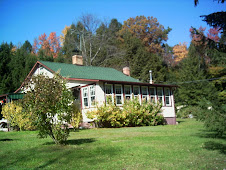
Developing an authentic voice is often tough for new writers. An author's inner voice can easily be drowned out by the endless echoes we hear from publishers, performers, and those who seem more successful than we are. Even writers like F. Scott Fitzgerald, have admitted the challenge of hearing their true voice amid the noise of the literary marketplace.
Despite his success, Fitzgerald felt he'd allowed others to tell him "how to do, what to say" and that he was "only a mediocre caretaker" of his own talent. He said that the push and pull of other people's opinions "always confused [him] and made [him] want to go out and get drunk." This solution clearly had BIG drawbacks.
The challenge of heeding our artistic voice is even more difficult in today's loaded media environment. Nevertheless, developing that ability is essential because it adds power to good writing and fuels a writer's artistic growth. The most original and compelling writers are often those who develop a routine that blocks out the flood of cultural messages -- for at least part of the day. These breaks allow the writer to focus more clearly on the images and ideas they really must explore. During moments of closer listening, we give ourselves a chance to tune into the voice that is unmistakably ours, unequivocally unique. It is both a flowing current and a lifeboat.











